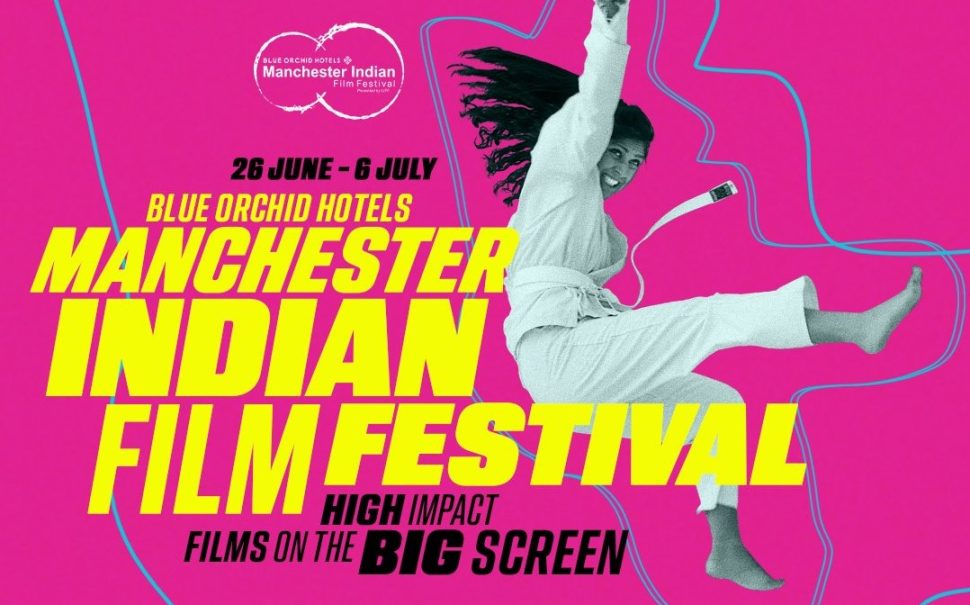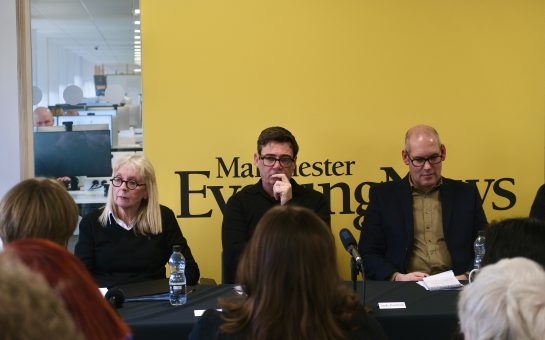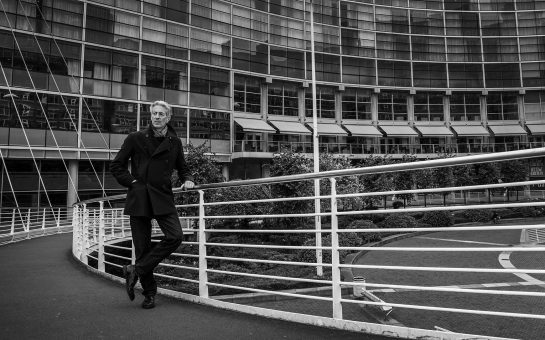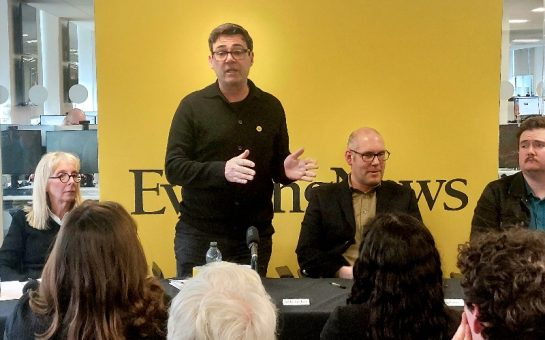After two weeks of diverse programming across five venues in the city, the Manchester Indian Film Festival (MIFF) 2022 came to a close on Wednesday 6th July at the Everyman Cinema on Quay Street.
The MIFF returned to Manchester for its second year, bringing film, poetry and discussions of South Asian identity to HOME cinema, Ducie Street Warehouse and more.
The festival is an offshoot of the London Indian Film Festival, which was established by Cary Rajinder Sawhney in 2010.
Sawnhey was working for the BFI London Film Festival when the idea came to him.
He said: “Like most international festivals, they [the BFI] only do a small selection of Indian cinema.
“I just thought ‘Where do all these films go?’ They never get shown anywhere else.”
Sawnhey explained that although the festival is branded as “Indian”, the films and performances originate from and represent a range of South Asian and diasporic experiences.
The aim for Manchester is to diversify the audiences of the screenings held by the MIFF.
“40% of the audience in London is non-Asian,” he said. “So we want to do the same thing in Manchester.
“It’s not just Indian films for Indian people – it’s Asian films for everybody.”
The programme of events ranged from British Asian comedy Little English, to short film collections, to the closing gala which featured the uplifting documentary Super-fan: The Nav Bhatia Story, which tells the story of how a man moved to Canada to escape anti-Sikh violence and became the face of the Toronto Raptors in the process.
The festival’s LGBTQ+ short film event at HOME cinema proved itself to be one of the most popular events of the programme.
Hosted by author, drag performer and activist Yvy DeLuca, ‘Too Desi Too Queer’ explored the lives, experiences and well-being of South Asian LGBTQ+ communities through recent short films such as Queer Parivaar and My Mother’s Girlfriend.
“It’s always nice to be involved in stuff like this,” DeLuca said, “especially being South Asian and trans.
“Too Desi Too Queer is important for people to understand not only being a desi person, and the stigma that comes with that being a queer person, when it comes to tradition, when it comes to family, culture, heritage, all of those things that kind of stifle us from being our authentic selves.
“But also within the community, I think it’s really important that we show the power in being queer – that we can wear that term queer with pride and go actually, it’s a really powerful way of uniting us all.”
Similarly to Sawnhey, DeLuca felt that Too Desi Too Queer was equally important for LGBTQ+ people outside the South Asian community to experience.
She said: “It was nice to see other people of different cultures there watching these short films, seeing what South Asian queer lives are like around the world.”
The MIFF also helped to expose lifelong residents of Manchester to places they had never explored.
MIFF Project Manager Danielle Porter said: “We brought in a really high percentage of people who have never been to these venues before.”
Sawnhey commented that venues like HOME are seen as very white spaces, and said: “Why shouldn’t we occupy these great spaces as well?”
Porter remarked that overall the festival has been a success and has received great feedback.
The festival has also helped to connect the South Asian community across the city with art and poetry workshops.
Porter said: “We worked with a Manchester city poet called Anjum Malik, and she ran poetry workshops for Deeplish Community Centre.
“For events where we didn’t have a Q+A, we had live poetry recited by the South Asian women who wrote it, and that had an amazing response.”
The Manchester Indian Film Festival hopes to return in 2023 with another diverse range of events, potentially including a masterclass for local South Asian filmmakers to learn from and network with industry professionals.




